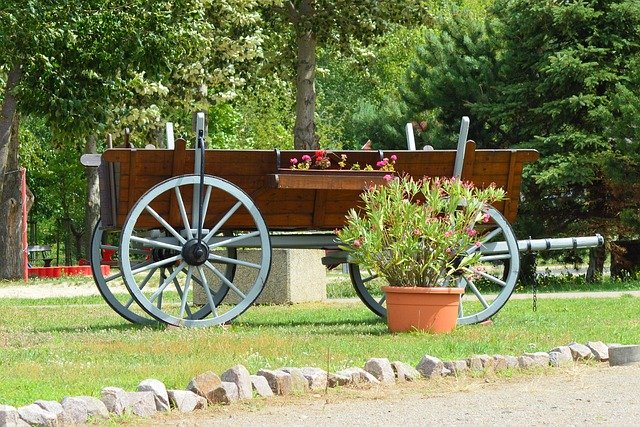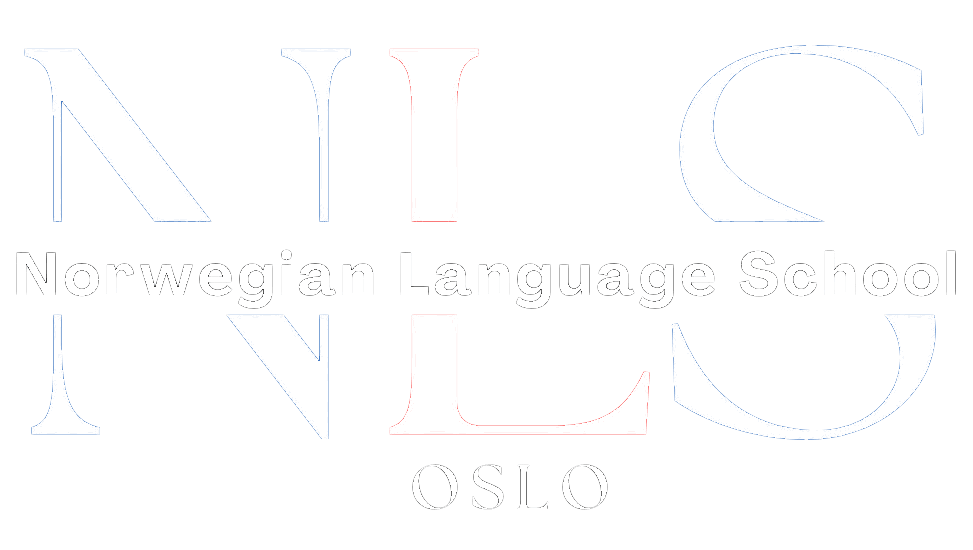

Norwegian Surnames Explained – Origins & Meanings
Have you ever wondered about the stories behind Norwegian surnames? Why are some names more common than others, and what do they mean? Join us on a journey through the fascinating world of Norwegian last names as we uncover their origins and unravel the hidden meanings behind them. Prepare to be intrigued!
Table of Contents
ToggleKey Takeaways:
- Discover the cultural significance of surnames in Norwegian society
- Explore the history of different types of Norwegian last names, including patronymic names, farm names, and occupational names
- Uncover the meanings behind common elements and suffixes found in Norwegian surnames
- Learn how to research the origins of your own Norwegian surname
- Find out how tracing Norwegian surnames can connect you to your rich heritage
The Significance of Surnames in Norwegian Culture
In Norwegian culture, surnames hold great significance as they connect individuals to their ancestral heritage. Passed down through generations, these family names provide a valuable link to the past and offer insights into the rich tapestry of Norwegian genealogy. Understanding Norway’s family names can unlock a wealth of knowledge about the country’s history, culture, and identity.
“Surnames are like whispers from the past, telling us stories about our ancestors and their place in Norwegian society.”
Why are surnames so important in Norwegian culture? They serve as markers of identity, highlighting an individual’s family background, geographic roots, and even occupation. Norwegian genealogy enthusiasts often dive into researching their family names to uncover hidden stories, trace lineages, and establish connections with distant relatives.
Norwegian surnames are not merely labels; they are windows into a rich heritage that stretches back centuries. By exploring the origins and meanings of these family names, individuals can gain a deeper understanding of their place in Norwegian society and the stories that shaped their ancestors’ lives.
| Reasons why surnames are significant in Norwegian culture: |
|---|
| 1. Identity and Family Background |
| 2. Connection to Ancestral Heritage |
| 3. Uncovering Hidden Stories and Lineages |
| 4. Establishing Connections with Distant Relatives |
Researching Norwegian genealogy often begins with understanding the family name and its history. Exploring the origins and meanings of surnames can reveal fascinating insights and shed light on the social, cultural, and occupational aspects of ancestors’ lives. It’s not just about discovering names; it’s a journey of self-discovery and connection to the past.
Stay with us as we dive deeper into the history and significance of Norwegian surnames, unraveling the stories they hold and providing valuable tips for researching your own family name.
Understanding Norwegian Last Names – A Brief History
In this section, we will explore the fascinating history behind Norwegian last names. Norwegian surnames have diverse origins, reflecting the rich tapestry of Norwegian culture. Let’s delve into the different types of surnames found in Norway and discover their unique stories.
Patronymic Names – A Connection to Ancestry
One of the most common types of Norwegian last names is patronymic names, which are derived from the given name of a person’s father. For instance, if John’s father’s name is Erik, his last name would be Johnson, meaning “John, son of Erik”. This naming convention was prevalent in Norway until the 19th century and is still seen today. Patronymic names provide a direct link to one’s ancestral lineage and have been instrumental in tracing Norwegian genealogy.
Farm Names – Honoring the Rural Heritage
Another significant aspect of Norwegian surnames is farm names. In the past, many Norwegians lived on farms, and their last names often indicated the name of the farm they resided on. Farm names are a testament to the deep connection between families and the rural landscape of Norway. By studying these names, researchers can gain insights into the geographical distribution of families and their ties to specific areas.
Occupational Names – A Window into Professions
Occupational names offer glimpses into the professions and trades of Norwegian ancestors. These surnames were derived from the occupation or trade practiced by an individual or their family. Examples of occupational names include “Bakker” (baker), “Smed” (blacksmith), and “Fiske” (fisherman). Understanding occupational names can provide valuable insights into the historical occupations and societal roles of Norwegian ancestors.
By exploring the origins of Norwegian surnames, we gain a deeper understanding of our heritage and the stories that shaped our family history. The next section will focus specifically on patronymic surnames in Norway, delving into their significance and variations throughout the years. Let’s continue our journey into the world of Norwegian genealogy!
Patronymic Surnames in Norway
Patronymic surnames have played a significant role in Norwegian genealogy, providing valuable insights into family lineage and heritage. In Norway, it is common for individuals to have surnames derived from their father’s first name, reflecting the strong familial ties and the passing down of names through generations.
This naming convention can be traced back to ancient Norse traditions, where the father’s name was used to identify individuals. For example, if Lars had a son named Erik, Erik’s last name would be Larsson, indicating that he is Lars’ son.
Patronymic surnames have evolved over time, resulting in variations and changes that reflect societal and cultural shifts. Certain prefixes and suffixes have been added to distinguish between different branches of a family or to denote specific characteristics or occupations.
“In Norway, patronymic surnames are not just names, they are identities that connect individuals to their ancestors and tell a story of family history.”
Over the years, many patronymic surnames have become fixed family names, while others still retain the patronymic style. These surnames provide a wealth of information for genealogical research, allowing individuals to trace their roots and uncover connections to their ancestors.
H3: Examples of Patronymic Surnames:
Here are a few examples of common patronymic surnames in Norway:
- Andersen – Son of Anders
- Johansen – Son of Johan
- Pedersen – Son of Per
- Olsen – Son of Ole
- Larsen – Son of Lars
These examples showcase the simple yet meaningful nature of patronymic surnames, providing insights into family connections and heritage.
Evolution of Patronymic Surnames:
Throughout history, patronymic surnames have undergone changes and adaptations, reflecting the dynamic nature of Norwegian society. These changes can be attributed to various factors, including language modifications, migration, and cultural shifts.
As the Norwegian language evolved, different suffixes were added to patronymic surnames, resulting in variations and individualization. For example, “-sen” and “-son” became common suffixes denoting “son of,” while “-datter” and “-dotter” were used for “daughter of.”
The patronymic naming convention has also been influenced by migration, particularly during the 19th century when Norwegians emigrated to other countries. In some cases, individuals changed their surnames to fit the naming practices of their new home, leading to anglicized versions or entirely new names.
This evolution of patronymic surnames highlights the importance of studying the historical context and linguistic changes when conducting Norwegian genealogical research.
“Exploring the evolution of patronymic surnames can unlock a wealth of information, shedding light on the intricacies of Norwegian history and the unique stories of individual families.”
| Surname | Meaning | Example |
|---|---|---|
| Andersen | Son of Anders | Jon Andersen |
| Johansen | Son of Johan | Lisa Johansen |
| Pedersen | Son of Per | Thomas Pedersen |
| Olsen | Son of Ole | Ingrid Olsen |
| Larsen | Son of Lars | Erik Larsen |
The table above provides additional examples of patronymic surnames, illustrating their common usage and the connections they have to individuals and their families.
By understanding the significance of patronymic surnames in Norwegian genealogy and exploring their evolution, individuals can gain a deeper appreciation for their family history and heritage.
Farm Names and Their Significance
In Norway, farm names have played a significant role in the formation of surnames. It was common practice for individuals to adopt the name of the farm they lived on as their last name, which reflects the strong connection between families and the rural landscape. Exploring these farm names not only provides insights into genealogical research but also uncovers fascinating stories about Norway’s agricultural history.
Farm names are a treasure trove of information for those delving into their Norwegian ancestry. They offer valuable clues about family lineages, geographical locations, and historical events. By understanding the significance of farm names, researchers can gain a deeper understanding of their Norwegian heritage.
Let’s take a look at some examples of famous Norwegian surnames derived from farm names:
“Lunden” – Derived from the Norwegian word for “grove” or “woods,” this surname reflects a family’s connection to a specific wooded area or forested farm.
“Berg” – Meaning “mountain” in Norwegian, this name signifies a family’s association with a farm located in a hilly or mountainous region.
“Viken” – This surname is derived from the Old Norse word “vík,” denoting a bay or inlet. It indicates that the family’s ancestral farm was situated near a coastal inlet or a body of water.
These are just a few examples of the diverse range of farm names that have shaped Norwegian surnames. By researching the history behind these names, individuals can uncover a wealth of information about their family’s past and gain a deeper appreciation for their Norwegian roots.
Occupational Names and Their Origins
In Norway, surnames often reflect individuals’ professions, providing a fascinating insight into their ancestral occupations. These occupational names have historical significance and continue to be preserved in modern Norwegian society.
The Role of Occupational Names in Norwegian Genealogy
Occupational names in Norway serve as valuable clues for genealogical research, giving us a glimpse into the work our ancestors engaged in. From bakers to shoemakers to fishermen, these surnames not only tell a story of occupation but also provide a connection to familial roots.
“The occupational names we bear carry the echoes of our ancestors’ trades, reminding us of their skills and contributions to society.”
Preserving Occupational Names in Modern Norwegian Society
While many surnames have evolved beyond their occupational origins, occupational names continue to be celebrated and cherished in modern Norwegian society. They serve as a reminder of the important roles that our ancestors played and the skills they possessed.
“By preserving occupational names, we honor the hard work of our forebears and keep their memory alive.”
Through surname research and exploration, we can gain a deeper appreciation for the occupational heritage that has shaped our Norwegian identities.
Exploring Norwegian Surname Meanings
In this section, we will delve into the fascinating world of Norwegian surnames and uncover the hidden meanings behind them. Understanding these surname meanings is not only crucial for genealogical research but also provides valuable insights into Norwegian culture and identity.
Common Elements and Suffixes in Norwegian Last Names
Norwegian surnames often contain common elements and suffixes that offer clues to their meanings. Let’s take a closer look at some of these:
| Surname Element/Suffix | Meaning |
|---|---|
| -sen/-son | Indicates “son of” and is derived from the father’s first name. For example, “Johansen” means “son of Johan”. |
| Haugen | Refers to a hill or mound, indicating that the family might have originated from a place with such geographical features. |
| -gaard/-gård | Signifies a farm or estate, suggesting that the family’s ancestral connection lies in agriculture. |
| Bakken | Translates to “hill” or “slope,” indicating a potential connection to hilly landscapes or a specific geographical location. |
These examples represent just a fraction of the rich variety of elements and suffixes found in Norwegian surnames. By analyzing these linguistic components, we can draw insights into the historical context, occupations, and geographic origins associated with different surnames.
The Importance of Surname Meanings in Genealogical Research
Studying the meanings of Norwegian surnames is a valuable tool for anyone conducting genealogical research. By deciphering the hidden stories behind each surname, researchers can trace their family’s roots, discover ancestral connections, and gain a deeper understanding of their heritage.
Uncovering the meaning of a surname is like unlocking a door to the past, allowing us to step back in time and explore the lives of our ancestors.
Let’s explore a few examples to highlight the diverse meanings associated with Norwegian surnames:
- The surname “Larsen” derives from the given name “Lars” and signifies “son of Lars.” It is one of the most common surnames in Norway and highlights the prevalence of patronymic naming traditions.
- The surname “Olsen” shares a similar meaning, indicating “son of Ole.” It is another widely found surname in Norway.
- “Berg” is a common element in Norwegian surnames and refers to a mountain or hill. Surnames such as “Bergesen” or “Berglund” might indicate ancestral ties to hilly regions.
- Names like “Nilsen” or “Ingebrigtsen” are patronymic surnames derived from Nils and Ingebrigt, respectively, further illustrating the importance of paternal lineage in naming conventions.
Exploring these surname meanings can unearth fascinating details about Norwegian history, social structures, and regional influences.
Join us in the next section as we uncover strategies for researching the origins of Norwegian surnames and examine tracing Norwegian heritage through these ancestral connections.
Researching Norwegian Surname Origins
Are you curious about the origins of your Norwegian family name? Discovering the history behind your surname can provide valuable insights into your ancestral roots and connect you to Norway’s rich heritage. In this section, we will explore various tips, resources, and challenges associated with researching Norwegian surname origins.
Online Databases and Archives
One of the most accessible ways to begin your research is by harnessing the power of online databases and archives. These platforms house a treasure trove of historical records, census data, and genealogical information that can help you uncover the origins of your family name.
“Researching the origins of your Norwegian surname is like embarking on a captivating journey into your family’s past.”
Some popular online resources include:
- Ancestry.com – This comprehensive genealogy website offers access to an extensive collection of Norwegian records, including birth, marriage, and death certificates, as well as immigration and naturalization records.
- FamilySearch.org – Operated by The Church of Jesus Christ of Latter-day Saints, this free online platform provides access to a vast collection of digitized historical records, including Norwegian census records, church registers, and probate records.
- National Archives of Norway – The official archival institution of Norway, this website offers a wealth of digitized records, maps, and photographs that can aid in your research.
Local Resources in Norway
If you have the opportunity to visit Norway or connect with local resources, it can greatly enhance your research experience. Local libraries, historical societies, and regional archives in Norway often hold valuable records that may not be available online.
Additionally, reaching out to local experts and genealogical organizations can provide you with unique insights and guidance specific to your surname and family history. They may offer helpful tips, recommend relevant manuscripts or publications, and even connect you with other researchers or distant relatives.
Challenges and Rewards
Researching Norwegian surname origins can be challenging and rewarding. While many records are available online, others may only exist in physical archives or have been lost due to historical events. It is important to approach your research with patience and perseverance, understanding that uncovering your surname’s origins may require time and effort.
However, the rewards of discovering your family’s history are immeasurable. Understanding the meaning behind your surname and tracing its origins can provide a sense of belonging and pride in your Norwegian heritage. It can also open doors to connect with long-lost relatives and create a deeper connection to your cultural identity.
| Pros of Researching Norwegian Surname Origins | Cons of Researching Norwegian Surname Origins |
|---|---|
| Uncovering your ancestral roots | Challenges in accessing certain records |
| Connecting with distant relatives | Records that may have been lost over time |
| Fostering a sense of cultural identity | Potential language barriers in research |
Despite the challenges, researching the origins of your Norwegian surname is a rewarding endeavor that can provide you with a deeper understanding of your family history and heritage. Embrace the journey of uncovering your ancestral past and enjoy the discoveries along the way!
Tracing Norwegian Heritage Through Surnames
Tracing your Norwegian heritage through surnames can be a fascinating journey that leads to a deeper understanding of your roots. It offers a unique opportunity to uncover the rich history, culture, and traditions that have shaped your family’s identity.
Through surname research, you can establish emotional and cultural connections with your ancestors, forging a sense of belonging and pride in your Norwegian heritage. Exploring the stories behind your family names can provide valuable insights into the lives and experiences of those who came before you.
“Discovering the meaning and origins of my Norwegian surname was a truly transformative experience. It connected me to my ancestors in a profound way and gave me a newfound appreciation for my heritage.” – Anna Olsen
By delving into the details of your Norwegian surnames, you can uncover personal stories and experiences that span generations. The journey may lead you to discover the occupations, farm locations, or paternal lineages that have played a role in shaping your family’s history and traditions.
Unlocking Hidden Connections
Tracing your Norwegian heritage through surnames can also help you unearth hidden family connections and distant relatives. As you explore genealogical records and connect with other individuals researching their Norwegian family names, you may discover shared ancestry and develop a network of relatives around the world.
By understanding the significance of your Norwegian surnames, you can piece together the puzzle of your family’s history and create a comprehensive picture of your heritage. The knowledge gained through surname research carries immense value, not only in preserving your family’s legacy but also in passing it on to future generations.
The Importance of Documentation
When delving into Norwegian genealogy, it is crucial to document your findings. Organize your research, collect relevant records, and create a family tree that showcases the connections between individuals and their surnames. This documentation will not only serve as a resource for your own understanding but can also be shared with other family members interested in their Norwegian heritage.
Example Table:
| Surname | Meaning | Origin |
|---|---|---|
| Andersen | Son of Anders | Patronymic |
| Larsen | Son of Lars | Patronymic |
| Berg | Mountain | Farm name |
| Svenningsen | Son of Svenning | Patronymic |
| Nielsen | Son of Nils | Patronymic |
This table showcases a few examples of Norwegian surnames, their meanings, and their origins. It illustrates the diverse nature of Norwegian family names, including both patronymic and farm names.
Tracing your Norwegian heritage through surnames is a meaningful and rewarding endeavor. It allows you to connect with your ancestry, uncover hidden stories, and preserve your family’s legacy for future generations. Embrace the journey and let your family names guide you on a voyage of discovery through Norwegian genealogy.
NLS Norwegian Language School in Oslo
The NLS Norwegian Language School in Oslo is an esteemed institution for individuals interested in learning the Norwegian language and exploring their Norwegian heritage. With programs and courses tailored to various proficiency levels, the NLS provides a comprehensive learning experience that fosters language skills, cultural appreciation, and personal growth.
Programs and Courses
The NLS offers a diverse selection of programs and courses designed to meet the needs of different learners. Whether you are a beginner looking to establish a solid foundation in Norwegian or an advanced learner aiming to enhance your fluency, the NLS has the perfect program for you. Here are some of the key offerings:
- Norwegian Language Courses: Comprehensive courses that cover all aspects of the Norwegian language, including speaking, listening, reading, and writing skills.
- Intensive Language Programs: Immersive programs that provide an intensive learning experience, allowing students to make significant progress in a short period of time.
- Specialized Courses: Tailored courses focused on specific areas of interest, such as Norwegian for business, travel, or academic purposes.
Resources and Support
In addition to the comprehensive language programs, the NLS offers a range of resources and support to enrich the learning experience:
- Experienced Instructors: Highly qualified and experienced instructors who are passionate about teaching the Norwegian language and culture.
- Modern Facilities: State-of-the-art facilities equipped with the latest language learning technologies, creating an immersive and interactive learning environment.
- Language Exchange Programs: Opportunities for students to practice their Norwegian language skills with native speakers through language exchange programs.
“At the NLS Norwegian Language School in Oslo, we are dedicated to providing a supportive and inspiring learning environment for individuals interested in learning the Norwegian language and exploring their Norwegian heritage. We believe that language learning goes beyond acquiring vocabulary and grammar; it opens doors to new cultures, perspectives, and connections. Join us on this enriching journey and discover the beauty of the Norwegian language and culture.”
Whether you are a language enthusiast, a descendant of Norwegian heritage, or simply curious about Norway and its language, the NLS Norwegian Language School in Oslo is the perfect place to embark on your language-learning journey. Here, you can unlock the doors to a rich and vibrant culture while developing valuable language skills that will open up new opportunities and connections.
Exploring Norwegian Surnames – A Window into Rich Heritage
Norwegian surnames are not just names; they are windows into a rich and vibrant heritage. Studying Norwegian last names can uncover fascinating insights into Norwegian history, culture, and identity. Whether you are conducting genealogical research or simply curious about your own surname, exploring Norwegian surnames is a journey worth taking.
One of the remarkable aspects of Norwegian last names is their diversity. From patronymic names to farm names and occupational names, each surname tells a unique story. These names reflect the ancestral connections, geographical roots, and even professions of the individuals who bear them. By understanding the origins and meanings of Norwegian surnames, we can gain a deeper appreciation for the diverse backgrounds that make up Norwegian society.
“Norwegian surnames offer a glimpse into the past and a testament to the enduring legacy of our ancestors. Exploring these names allows us to connect with our roots and gain a greater understanding of our Norwegian heritage.”
When researching Norwegian surnames, you may come across common elements and suffixes that hold cultural and historical significance. For example, the “-sen” or “-son” suffix indicates a patronymic name, while farm names often end in “-gård” or “-stad.” Unraveling the meanings behind these naming conventions can provide valuable clues about family history and regional traditions.
To illustrate the diverse nature of Norwegian surnames, here is a table showcasing the different types and examples:
| Type of Surname | Examples |
|---|---|
| Patronymic Names | Johansen, Larsen, Olsen |
| Farm Names | Åsheim, Solberg, Berglund |
| Occupational Names | Skoglund, Fisker, Bakken |
By exploring Norwegian surnames, we not only gain insights into our own heritage but also contribute to the broader understanding and preservation of Norwegian genealogy. Through research, we can piece together the puzzle of our family history, discover long-lost relatives, and forge connections with our Norwegian roots.
So, whether you are embarking on a genealogical quest or simply curious about the meaning behind your own last name, diving into the world of Norwegian surnames is an enriching endeavor. It offers a window into a rich heritage that is waiting to be explored and celebrated.
Conclusion
In conclusion, Norwegian surnames are more than just labels; they are windows into a rich and diverse heritage. Throughout this article, we have explored the cultural significance of surnames in Norwegian society, their historical origins, and the meanings they hold. By understanding and researching our own family names, we can uncover valuable insights into our Norwegian ancestry and connect with our roots.
Norwegian surnames reflect the various naming conventions that have shaped the country’s history, including patronymic names, farm names, and occupational names. Each type of surname tells a unique story, providing clues to our ancestors’ occupations, family connections, and geographic origins. By exploring the meanings behind Norwegian surnames, we can gain a deeper appreciation for the cultural and historical significance they carry.
As we conclude this article, we encourage you to embark on your own journey of discovery. Take the time to research and delve deeper into your Norwegian heritage through your family name. Whether you are interested in genealogy, exploring your cultural identity, or simply curious about your roots, the exploration of Norwegian surnames offers a fascinating and rewarding path. Embrace the opportunity to connect with your past and foster a stronger sense of belonging.
FAQ
What are Norwegian surnames?
Why are surnames important in Norwegian culture?
How did Norwegian surnames originate?
What are patronymic surnames?
What are farm names and why are they significant?
How did occupational names come about?
What do Norwegian surnames mean?
How can I research the origins of my Norwegian surname?
Can tracing Norwegian surnames help me uncover my heritage?
Does NLS Norwegian Language School in Oslo offer programs related to Norwegian heritage and surnames?
Why is exploring Norwegian surnames important?

Norwegian A1-A2
Course Overview The Norwegian A1-A2 course is an online program focused on teaching essential Norwegian grammar and vocabulary. It includes a variety of materials and topics, with opportunities to interact with a Norwegian teacher entirely online. Curriculum Highlights The course covers key areas such as grammar and vocabulary and topics such as family, daily life, education, work, traditions, and leisure activities. Who Should Enroll? This course is perfect for beginners or those at the A1 or A2 levels who want to improve their Norwegian skills. What You Get Access to the full Norwegian A1-A2 course. A monthly 1-hour online conversation with a teacher. Many written and oral assignments. Comprehensive information on Norwegian grammar, Norwegian vocabulary and how to use them, important sentence structures, etc. Tips on additional resources to further enhance your Norwegian learning.
0 students enrolled
Last updated Dec 10th, 2024
If you want to learn Norwegian, you can register for classes here. We look forward to hearing from you and helping you become fluent in Norwegian.





